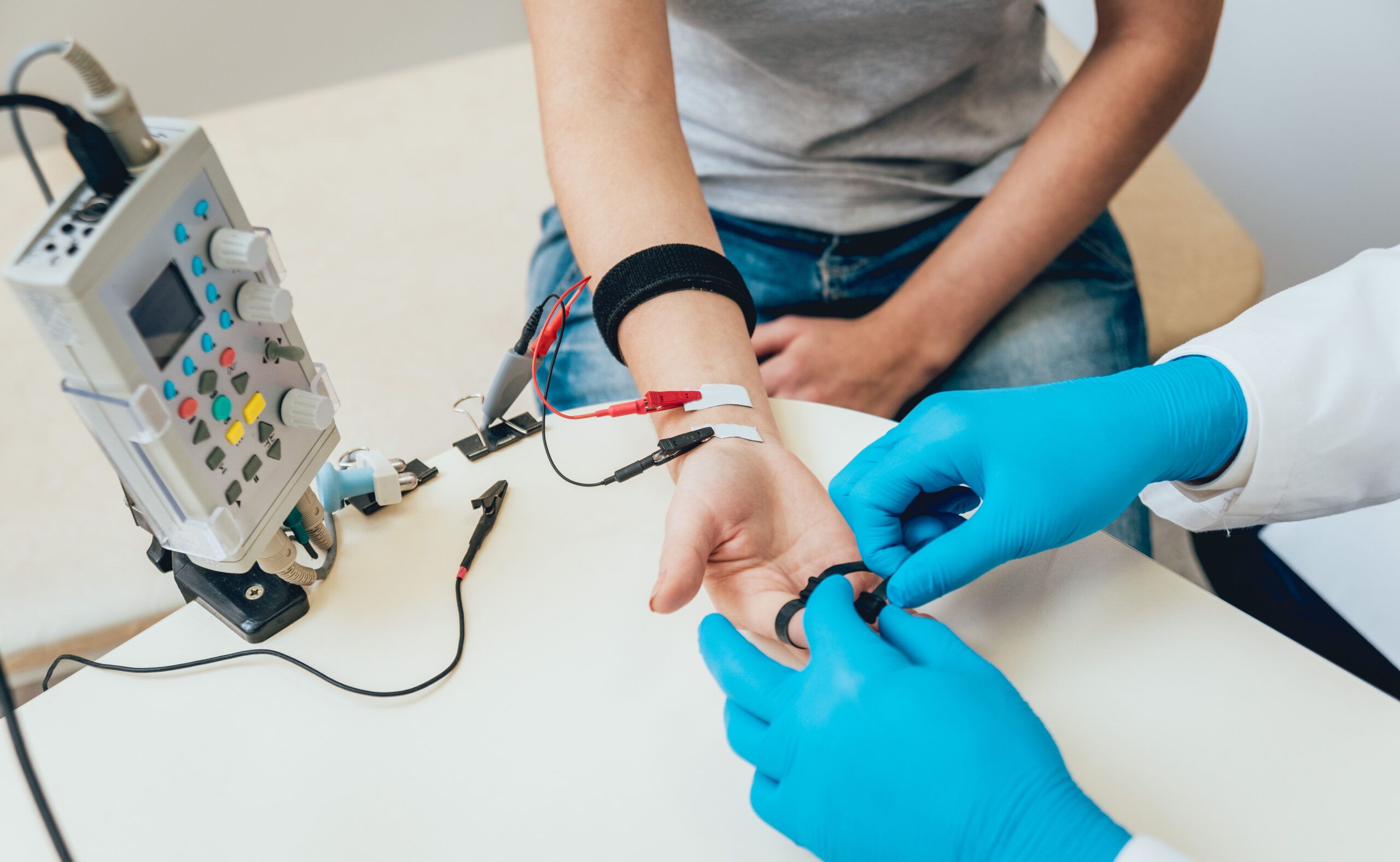Orthopedic Associates of Dutchess County is pleased to provide Electromyography (EMG) and Nerve Conduction Studies (NCS) services at our Poughkeepsie and Kingston locations. Please note, we are now accepting patients referred by outside providers for EMG testing.
Electromyography (EMG) and Nerve Conduction Studies (NCS) are diagnostic procedures that assess the health and function of your muscles and the nerves that control them. These tests are performed together and can reveal a variety of nerve and muscle disorders. EMG and NCS tests can be an essential part of your diagnosis process.
What is Electromyography (EMG)?
Electromyography (EMG) is a test that helps physicians understand how muscles work. It involves using small sensors called electrodes to listen to the electrical signals that muscles make when they move.
The pin electrode is inserted through the skin into the muscle. During the insertion, the physician determines the resistance of the muscle. The physician also evaluates the electrical activity of the muscle both at rest and during contraction of the muscle. The pin electrode translates the amount and intensity of the electrical activity into waveforms displayed on a computer screen. The sounds of the electrical activity are also emitted and interpreted by the physician.
Therefore, the physician is not only using sight and touch but also sound to determine the proper diagnosis. After examining one muscle, the physician analyzes all of the data – the waveform, the sounds, and the feel of the muscle – to determine if and which other muscles may need to be studied.
EMGs help physicians diagnose neuromuscular disease, neurological disorders, muscle disease, and nerve abnormalities associated with pain or numbness.
What is Nerve Conduction Study (NCS)?
Nerve conduction studies (NCS) are used to test the speed of impulses through a nerve. To perform this study, surface electrodes are used to stimulate the nerve by placing electrodes on the skin at various locations over the nerve. One electrode stimulates the nerve with a mild electrical impulse and the resulting electrical activity is recorded by the other electrode. The distance between electrodes and the time it takes for electrical impulses to travel between electrodes are used to determine whether the nerve is functioning appropriately.
Nerve conduction studies (NCS) help diagnose conditions affecting nerves, such as peripheral neuropathy, carpal tunnel syndrome, and more. An accurate diagnosis is the first step in a patient’s treatment plan.
What are the Risks?
EMG/NCS is a low-risk procedure and complications rare. There is a small risk of bleeding, infection, and nerve injury with the EMG portion of the test.
Preparing for the Procedure
Please be sure to wear loose clothing to the procedure. Clean the area being tested, so it is free of crems and oils. Do not stop any of your medication, including pain medicine, for the procedure.





